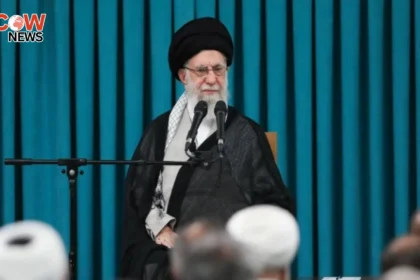In a significant development for Pakistan cricket, Babar Azam has announced his resignation as the captain of the national men’s team for white-ball formats, including One Day Internationals (ODIs) and T20s. This decision comes in the wake of a disappointing campaign at the T20 World Cup 2024, where the team failed to meet the expectations of fans and cricket pundits alike. Babar made this announcement through a heartfelt message shared on social media, specifically on X (formerly Twitter), where he expressed his gratitude for the support he received during his tenure.
Babar’s tenure as captain has been marked by both highs and lows. He led the team to notable victories but also faced criticism for the team’s inconsistencies and strategic decisions, particularly in crucial matches. The T20 World Cup was seen as a defining moment for Babar and his leadership, but the team’s early exit left many questioning their preparedness and approach.
In his message, Babar stated, “Dear Fans, I’m sharing some news with you today. I have decided to resign as captain of the Pakistan men’s cricket team, effective as of my notification to the PCB and Team Management last month. It’s been an honor to lead this team, but it’s time for me to step down and focus on my playing role.” His words reflect a deep sense of responsibility and self-awareness, recognizing the pressures that come with leadership in a cricket-crazed nation.
A Journey of Leadership
Babar Azam was appointed as the white-ball captain in 2019, and since then, he has overseen various international series and tournaments. His leadership style has often been characterized by a calm demeanor and a focus on building a cohesive team environment. Under his captaincy, Pakistan achieved notable milestones, including a series win against India in 2021 and a commendable performance in the ICC Champions Trophy.
However, the journey was not devoid of challenges. Babar faced the difficult task of managing a squad that often struggled with consistency, both in batting and bowling. Critics pointed to moments of hesitation in his decision-making, particularly during high-stakes matches, where strategic errors sometimes cost the team crucial games. The T20 World Cup 2024 served as a culmination of these pressures, resulting in increased scrutiny of his leadership abilities.
The T20 World Cup 2024: A Defining Moment
The T20 World Cup 2024 was a much-anticipated tournament for Pakistan, given the team’s rich history in limited-overs cricket. Expectations were high, particularly following a successful run in previous international fixtures. However, the tournament proved to be a disappointment. The team’s performance was marked by inconsistency, culminating in an early exit that left fans and stakeholders disheartened.
Babar’s captaincy was under the microscope throughout the tournament. Questions arose regarding his tactics, selection decisions, and the team’s inability to adapt to different match situations. The disappointing results prompted discussions about the future direction of the team and whether a change in leadership might reinvigorate the squad.
In the aftermath of the tournament, Babar’s decision to step down reflects a desire to take responsibility for the team’s underwhelming performance. By prioritizing his role as a player, he aims to regain focus on his batting, which has always been his strong suit. “Captaincy has been a rewarding experience,” he noted, “but it’s added a significant workload. I want to prioritize my performance, enjoy my batting, and spend quality time with my family, which brings me joy.”
Reflections on Leadership and Legacy
Babar’s leadership journey has not only been about wins and losses but also about personal growth. He emphasized the importance of clarity moving forward, stating that stepping down would allow him to channel more energy into his game and personal development. This decision illustrates his maturity as a leader, acknowledging that sometimes stepping back can lead to greater contributions in other capacities.
Throughout his tenure, Babar has been a source of inspiration for many young cricketers in Pakistan. His batting skills, characterized by elegance and precision, have made him a role model for aspiring players. He has consistently performed under pressure, accumulating runs and accolades while maintaining a sense of humility.
His statement further reinforced this commitment: “I’m proud of what we’ve achieved together and excited to continue contributing to the team as a player. Thank you for your love and support.” This message resonates with fans who have rallied behind him through thick and thin.
The Road Ahead for Pakistan Cricket
With Babar stepping down, the Pakistan Cricket Board (PCB) now faces the critical task of appointing a new captain. This decision will have long-term implications for the team’s dynamics and strategy, particularly as they prepare for upcoming series and international competitions. The PCB will need to consider candidates who can unite the team and bring a fresh perspective to their game.
Several players have been touted as potential successors, including experienced campaigners and rising stars. The appointment will likely hinge on a blend of leadership skills, cricketing acumen, and the ability to inspire confidence in the team. As the board deliberates, the focus will also be on ensuring a seamless transition that allows the team to build on its existing strengths while addressing its weaknesses.
The Role of Support Staff and Coaching
Beyond the captaincy, the performance of the support staff and coaching team will also come under scrutiny. The strategic decisions made by the coaching staff during the T20 World Cup were questioned, particularly regarding player selection and match tactics. The PCB might consider conducting a thorough review of the coaching setup to ensure that the team is equipped with the right guidance moving forward.
Coaching changes could also be on the horizon, with calls for a more dynamic approach to training and match preparation. As cricket continues to evolve, particularly in the shorter formats, the need for innovative strategies and a strong support system has never been more critical.
The Fans’ Perspective
For Pakistani cricket fans, Babar’s resignation as captain is bittersweet. While many supported his leadership and celebrated his achievements, the disappointment of the T20 World Cup was a harsh reminder of the pressures faced by players and leaders alike. Fans have expressed mixed emotions on social media, with some voicing their support for Babar’s decision while others lament the loss of a leader they believed could turn the team’s fortunes around.
The passionate fan base remains hopeful that Babar will continue to deliver on the field and contribute significantly to the team’s success in the future. His batting prowess has been a beacon of hope for many, and as he focuses on his game, fans will be watching closely to see how he performs without the added pressure of captaincy.
Looking to the Future
As Babar Azam steps down from his leadership role, the future of Pakistan cricket remains filled with potential. The emphasis on a fresh approach, both in leadership and strategy, could pave the way for a new era of success. Babar’s decision may serve as a catalyst for positive change, allowing the team to regroup and come back stronger.
The upcoming series and tournaments will be crucial for the team as they look to rebuild and regain the confidence of their supporters. Babar’s performance as a player will be pivotal in this transition, as he aims to lead by example and inspire his teammates through his batting.
In the coming months, the PCB’s decisions regarding leadership and team composition will be under scrutiny, as the cricketing world watches to see how Pakistan navigates this period of change. With Babar at the forefront as a player, there remains optimism that the team can harness its talent and restore its reputation on the international stage.
#BabarAzam #PakistanCricket #T20WorldCup2024 #CricketLeadership #PCB







